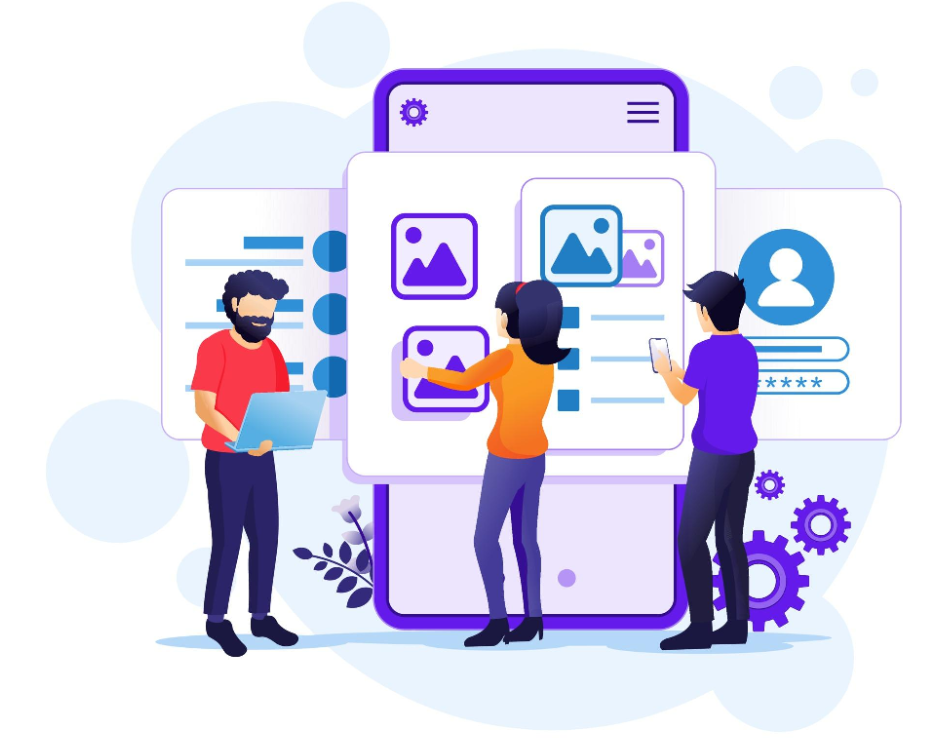Artificial Intelligence (AI) has become one of the leading forces behind technological growth in the modern world. AI permeates every aspect of daily life, from voice assistants like Siri and Alexa to self-driving cars and tailored suggestions. However, serious privacy and data protection issues arise as AI develops and shapes sectors. One of the most critical issues in the current digital era is balancing protecting personal data and utilizing AI’s potential.
Recognizing AI’s Role in Data Utilization
For AI to work well, enormous volumes of data are required. Machine learning models—especially deep learning models—need access to a variety of datasets to identify patterns, generate predictions, and advance over time. AI systems thrive on this abundance of data, whether it be more complex data like physiological information or location monitoring or more personal data like emails, social media activity, or past purchases.
However, the hazards to personal privacy increase with the amount of data an AI system uses. Data forms the backbone of advanced AI applications, including programs like PGDM in AI, enabling businesses to make data-driven decisions with precision. Without access to data, these systems cannot function optimally. Yet, while data fuels innovation, it also raises the stakes in data protection.
When AI systems gather, examine, and use personal data, it becomes crucial to ensure that it is managed securely and responsibly. Building customer trust and preventing serious privacy breaches requires balancing utilizing AI’s potential and safeguarding personal data.
AI’s Privacy Risks
- Data Gathering and Monitoring: Because AI systems rely on data to function, a vast amount of personal data is frequently collected via social media, physical sensors, or online activities. With more data they can access, AI systems’ forecasts and analyses can become more precise and valuable. This collection enhances the precision of AI’s analyses and predictions, as seen in MIT AI Certificate programs, which highlight data’s transformative impact on AI development. However, without file transfer monitoring, this data collection may become invasive, resulting in privacy-invading surveillance.
- Breaches and Data Security: AI systems depend on enormous databases, which, if not sufficiently secured, might be easy targets for hackers. Adopting a structured approach to data security is crucial to continuously monitoring and safeguarding sensitive information within AI-driven systems. A breach of AI-driven systems may make sensitive data, including financial information, medical records, and personally identifying information, public. This puts Users at serious risk, particularly when extremely sensitive data is processed by AI systems.
- Discrimination and Bias: The quality of AI systems depends on the quality of the data they are trained on. If the data contains any biases, including those based on socioeconomic status, gender, or race, the AI’s results may exhibit biases. Biased criminal sentence forecasts or biased hiring judgments are just two examples of the discriminatory effects that may result from this. Furthermore, because AI is data-driven, profiling people using these biased datasets may unintentionally reinforce or worsen privacy problems.
- Black Box Problem (Lack of Transparency): Many AI models, profound learning algorithms, operate as “black boxes,” meaning humans have difficulty understanding how they make decisions. Because of this lack of transparency, it may be challenging to determine whether AI systems are exploiting personal data ethically. It’s also difficult to ensure privacy is protected and maintained when there is a lack of clear insight into how AI operates.
Privacy’s Significance in the AI Age
Maintaining privacy standards is becoming more critical as AI is used in delicate fields like healthcare, banking, and law enforcement. Data privacy must be protected as a fundamental human right so that people can continue to have control over their personal data. In the absence of adequate privacy laws, people are susceptible to data misuse, which can result in identity theft, discrimination, and loss of personal freedom.
Privacy also plays a pivotal role in building consumer trust. Users are more likely to adopt AI-driven innovations when they feel confident their data is being managed responsibly. Programs like Gen AI Certification emphasize the ethical application of AI, integrating privacy considerations into their training modules. Conversely, frequent data breaches or unethical practices erode trust and can significantly hinder AI adoption.
Legal Structures and Rules Regarding AI Privacy
Governments everywhere have acknowledged the significance of privacy in AI and have enacted a number of laws designed to safeguard personal information while fostering the development of AI. Two important privacy laws that influence the advancement of AI are:
- The GDPR, or General Data Protection Regulation: One of the most extensive data privacy laws in the world was put into effect by the European Union in 2018 and is known as the GDPR. It imposes strict guidelines on how businesses manage personal information, including the right to access, amend, or remove data. People have the ability to challenge choices made only by AI algorithms thanks to particular provisions in the GDPR that address automated decision-making processes.
- The CCPA, or California Consumer Privacy Act: Residents of California have the right to access and have their personal data kept by businesses deleted under the CCPA, which went into effect in 2020. Like the GDPR, companies must reveal how they utilize customer data. Programs focused on PGDM in AI often incorporate these frameworks into their curriculum to ensure compliance and ethical development.
Both policies strongly emphasize the necessity of data transparency, user consent, and opt-out rights to ensure that AI developers respect individual privacy while still having access to the data required to create complex models.
Protecting the Privacy of Data in AI Development
Despite AI’s enormous promise, privacy-preserving measures must be implemented to guarantee that user data is treated morally. AI systems’ privacy risks can be reduced in a number of ways:
- Making and Anonymizing Data: Masking or anonymizing sensitive data is one of the best approaches to preserve privacy in AI systems. Linking certain data to specific people is far more challenging when personally identifiable information (PII) is removed from datasets. This guarantees that there won’t be any privacy violations even if data is made public.
- Federated Education: Federated learning is a cutting-edge method of training AI models that keeps data on the user’s device instead of sending it to a central server. AI models are trained by combining minor updates from specific devices rather than gathering vast datasets. This method protects personal data privacy while allowing AI systems to learn and grow.
- Various Types of Privacy: Even when statistical analysis is carried out, the approach known as differential privacy protects the privacy of individual data points inside a dataset. Differential privacy stops people from being identified within datasets by introducing noise into the data. Businesses like Apple and Google have employed this strategy to gather data while lowering privacy concerns.
- Designing AI Ethically: From the outset, ethical considerations should be incorporated into the AI development process. This involves developing AI systems with privacy, equity, and transparency as top priorities. In addition to following privacy laws, ethical AI design ensures that AI systems don’t reinforce prejudices or injure disadvantaged groups. Ethical frameworks, such as those taught in MIT AI Certificate programs, guide developers in creating responsible AI systems.
- Consent and Control of Users: A key component of privacy is granting users control over their data. AI developers should ensure that people can quickly access, edit, and remove their data. Users should also have the choice to refuse data collection or profiling and be made aware of how their data will be used.
Advances in AI and Methods for Preserving Privacy
As privacy concerns and AI continue to develop, new technologies and ideas are being developed to balance the two better. AI-powered encryption is a promising field of study that uses AI models to enhance data encryption methods. AI can assist in developing more resilient encryption systems that guarantee data security while permitting the open exchange of information by employing machine learning algorithms to anticipate possible flaws.
The emergence of Privacy-Enhancing Technologies (PETs), which prioritize protecting privacy without sacrificing the usefulness of data, is another interesting trend. PETs are made to safeguard personal information throughout its lifecycle, from gathering and processing it to analyzing and disseminating it. Data analysis and sharing in encrypted form are made possible by methods like secure multi-party computation and homomorphic encryption, which guarantee privacy all along the way.
Conclusion
The difficulty is to strike a balance between AI’s revolutionary potential and people’s fundamental right to control their personal data. AI and privacy are two sides of the same coin. Privacy is not only a legal need but also a fundamental component of trust that guarantees the moral and responsible application of AI technologies.
Even while AI has the potential to change businesses and improve people’s lives, privacy protection requires collaboration between customers, regulators, and AI developers. AI can advance without endangering individual rights by using privacy-preserving strategies, including data anonymization, federated learning, and differential privacy.
Privacy concerns must remain at the forefront of AI development as it advances to protect personal data and ensure that the technology benefits society. By balancing innovation and data protection, we can only fully utilize AI while protecting people’s privacy and autonomy.
Educational programs and certifications play a crucial role in promoting ethical and privacy-conscious AI practices. For instance, Gen AI Certification programs emphasize data protection strategies while fostering innovation. Similarly, specialized courses like PGDM in AI and MIT AI Certificates prepare professionals to navigate the complex intersection of AI innovation and data privacy.
———————————————————————————————————————
Author Bio
Navya Srivastav is a creative and prolific writer who likes to engage people with words. She thrives on exploring innovative ideas and combining them with technology-driven approaches to produce impactful and meaningful content. Her enthusiasm lies in transforming complex concepts into relatable and engaging stories that resonate with readers.






